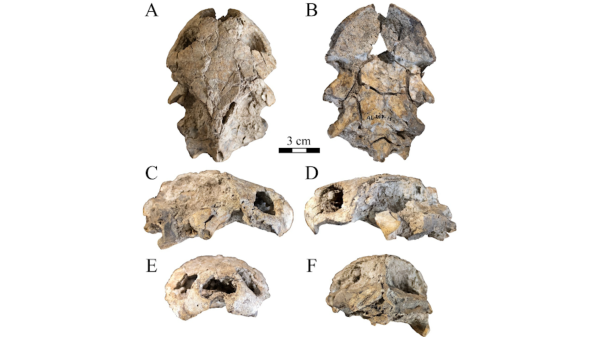Arthur Daemmrich named director of Consortium for Science, Policy & Outcomes

Arthur Daemmrich, the new director of ASU's Consortium for Science, Policy & Outcomes, hopes to lead the network in fostering new policies, advancing the consortium's work in participatory technology assessment and engaging in important discussions about emerging science and technology. Photo courtesy Arthur Daemmrich
Given his work history with organizations such as Harvard Business School and the Smithsonian Institution, Arthur Daemmrich is no stranger to innovation and public engagement. He now brings this combined experience to Arizona State University as the director of the Consortium for Science, Policy & Outcomes (CSPO), a globally recognized network aimed at enhancing science and technology’s ability to create a more just society.
CSPO, based at ASU’s center in Washington, D.C., is a research unit of ASU’s Julie Ann Wrigley Global Futures Laboratory. The center dates back to 1999 when it was first established by ASU President Michael M. Crow while he was at Columbia University to meet a mission set forth by former U.S. Rep. George E. Brown Jr. — that science should be the servant of justice, freedom, equality and enlightenment.
As the newest director, Daemmrich will lead the intellectual network in fostering new policies, advancing the consortium’s work in participatory technology assessment and engaging in important discussions about emerging science and technology.
“CSPO has really built expertise around the broad topic we call ‘responsible innovation,’” Daemmrich said. “Traditionally, a new idea or technology is tested in a lab to make sure it works and then it’s pushed out into the market. What people don’t always do is engage with the communities that will be impacted by it. CSPO challenges that practice.”
He said his first brush with the concept of responsible innovation occurred in his sophomore year of college when he was tasked to walk West Philadelphia and write a paper about how technology impacted the lives of its residents. Through walking the area, he realized there was a section that seemed to be cut off from the city set apart by a set of railroad tracks.
“If you crossed the tracks, you were in a distinctly different part of the city,” Daemmrich said. “You could see how the area had been transformed by what transportation was and wasn’t available. I wrote my paper about that separation, and the idea that technologies we introduce have long-term — sometimes subtle and sometimes not — impacts on communities. That has stuck with me since.”
At CSPO, technology and science are seen as immensely powerful tools that must be wielded with both determination and care. CSPO’s projects focus on areas such as global development, complex sociotechnical systems and sustainability, in addition to education and engagement.
Being located in D.C., Daemmrich said he is looking forward to further strengthening the bridge that connects ASU and CSPO’s work to national changemakers.
“CSPO has worked really effectively with a number of agencies on how to do risk assessment and real-time technology assessment,” he said, “and I would argue that ASU is the top university in the world for the field of science and technology studies.”
Daemmrich comes to ASU most recently from the Smithsonian Institution, where he served as the director of the Lemelson Center for the Study of Invention and Innovation. Other positions he has held include teaching at Harvard Business School, University of Kansas Medical Center and China Europe International Business School.
In addition to being the director of CSPO, Daemmrich holds an academic appointment within the School for the Future of Innovation in Society. While Daemmrich’s prior work experience has overlapped with the work he is doing at ASU, he was also driven to work for the university for its mission statement of inclusion.
Daemmrich said his father came to the United States from East Germany in the 1950s and worked his way through his undergraduate degree while employed at a department store. Due to the cost of education and focus on elites at some universities, Daemmrich said this feat is “next to impossible” today.
“To be able to achieve an education is a path to success in this country,” Daemmrich said. “The fact that ASU has stated in the vision and mission statement that it's going to put systems in place that help people do that, I found that incredibly inspiring.”
More Science and technology

New research by ASU paleoanthropologists: 2 ancient human ancestors were neighbors
In 2009, scientists found eight bones from the foot of an ancient human ancestor within layers of million-year-old sediment in…

When facts aren’t enough
In the age of viral headlines and endless scrolling, misinformation travels faster than the truth. Even careful readers can be…

Scientists discover new turtle that lived alongside 'Lucy' species
Shell pieces and a rare skull of a 3-million-year-old freshwater turtle are providing scientists at Arizona State University with…